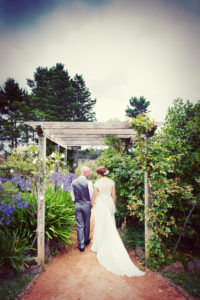 My wife and I first met through an online dating site. She sent me a message on one of their free unlimited messages weekends and we got chatting. After we chatted for a while and we decided it might be good to catch up for a coffee we added each other on Facebook so we could keep in touch. One of the first things we both did once we became Facebook friends (apart from a bit of photo stalking) was check out what mutual friends we had. Oddly enough given we live in a small city and are both part of the Christian community, we had all of 2 mutual friends and neither of us knew either of them very well. So while the Facebook stalking didn’t achieve much for us, it’s interesting to reflect on how one of the first things we both did was to look for connections to help us understand who the other person was. We both looked at the other’s connections to get a clearer picture of their identity.
My wife and I first met through an online dating site. She sent me a message on one of their free unlimited messages weekends and we got chatting. After we chatted for a while and we decided it might be good to catch up for a coffee we added each other on Facebook so we could keep in touch. One of the first things we both did once we became Facebook friends (apart from a bit of photo stalking) was check out what mutual friends we had. Oddly enough given we live in a small city and are both part of the Christian community, we had all of 2 mutual friends and neither of us knew either of them very well. So while the Facebook stalking didn’t achieve much for us, it’s interesting to reflect on how one of the first things we both did was to look for connections to help us understand who the other person was. We both looked at the other’s connections to get a clearer picture of their identity.
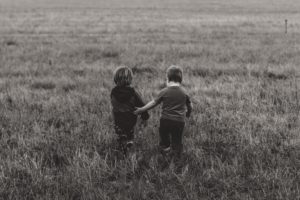 From the moment we are conceived our connections begin to influence our identity. From our parents we inherit qualities like our ethnicity, our looks and our intelligence. Our primary care givers, whether it’s our parents or others, are the ones who shape our initial perspective on the world and give us our foundational skills for interacting with it and learning about it. As we get older our circle of connections widens to include friends who mould us and shape us further by challenging or supporting the world view we got from home. The older we get, the more the influence transitions from our parents to our peers, and to the groups we involve ourselves in like sports clubs, fan groups, workplaces and churches or other faith-based organisations. Each of these connections will impact how we see ourselves and our place in the world around us. This means that while the source of the impact on our identity changes, the importance of our connections doesn’t.
From the moment we are conceived our connections begin to influence our identity. From our parents we inherit qualities like our ethnicity, our looks and our intelligence. Our primary care givers, whether it’s our parents or others, are the ones who shape our initial perspective on the world and give us our foundational skills for interacting with it and learning about it. As we get older our circle of connections widens to include friends who mould us and shape us further by challenging or supporting the world view we got from home. The older we get, the more the influence transitions from our parents to our peers, and to the groups we involve ourselves in like sports clubs, fan groups, workplaces and churches or other faith-based organisations. Each of these connections will impact how we see ourselves and our place in the world around us. This means that while the source of the impact on our identity changes, the importance of our connections doesn’t.
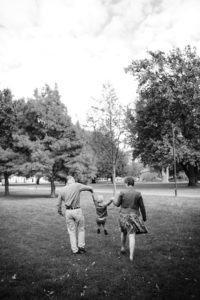 Looking at the connections in my own life, I am a son, a brother, a cousin and a nephew. I have been a partner, a fiancé a husband and step-father, then a divorcee and single. Then I was blessed enough to be a partner and a fiancé again, and now I’m a husband and a step-father again. I am a friend, a mate, a manager and an employee. I’ve been a soccer player, a hockey player, basketballer, a touch footballer and a crossfitter. I am a gym goer. I’ve been a part of car clubs and photography groups. I’ve been youth group leader and I am a church going Christian. I probably have many more connections than I can list. None of them either individually or in combination define me entirely, but each and every one of them contribute to my identity.
Looking at the connections in my own life, I am a son, a brother, a cousin and a nephew. I have been a partner, a fiancé a husband and step-father, then a divorcee and single. Then I was blessed enough to be a partner and a fiancé again, and now I’m a husband and a step-father again. I am a friend, a mate, a manager and an employee. I’ve been a soccer player, a hockey player, basketballer, a touch footballer and a crossfitter. I am a gym goer. I’ve been a part of car clubs and photography groups. I’ve been youth group leader and I am a church going Christian. I probably have many more connections than I can list. None of them either individually or in combination define me entirely, but each and every one of them contribute to my identity.
What about you? What are your connections? Who are the people and groups who impact on your identity? I’ve got a couple of quick exercises for you to try to help think about these questions. The first is called an eco-map. Draw yourself in a circle the middle of a page, like the image, and then in other circles around you draw the connections you have in your community. For example, family, friends, sports club, professional connections, social clubs etc. The draw the things that you feel are most influential in circles closest to you, and as things become less influential draw their circles further away. This will give you a picture of all the different connections and influences in your life.
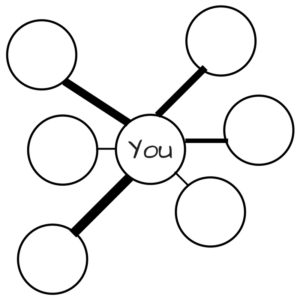
The second activity is looking at your friendship circles. Again, draw yourself in a circle in the middle of the page, but this time draw three concentric circles around yourself like in the picture. In the circle closest to you, put the names of the closest people in your life. These are the people who know most, if not everything, that goes on in your life and the ones who you would be comfortable talking to about almost anything. In the next circle out write the names of those people who know you fairly well, but who don’t know as much as the inner circle. These people are good friends, but not your first port of call. In the outer circle put your other main friends or family, people who you have a good relationship with but who don’t know a lot of the details of what happens in your life. They are people you can comfortably chat with, and probably keep tabs on through social media, but that’s about it.
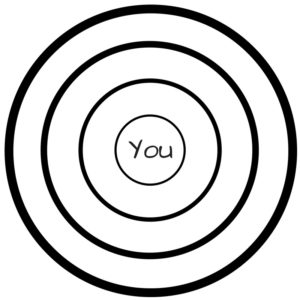
Once you’ve done each of these activities, stop and take a look at the people and groups in each of your circles. Pay particular attention to those in the closest circles of the eco-map, and the inner friendship circle. These are the people who will have the most impact on your identity because they are the ones who have the most access to your life. Are they good influences? Do they strengthen and encourage you? Are there people in those inner circles who maybe should be a layer back because they’re not great for you? Or people in the outer circles who should be closer because they are more likely to build you up?
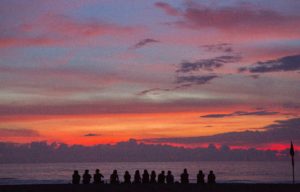
Our connections are often something we give little thought to, but they have a huge influence in every aspect of our lives. Our family and our friends each impact who we are in different ways, and the closer they are to us the more impact they have. This week I’d encourage you to make some time to consider the connections in your life and how they impact your identity.
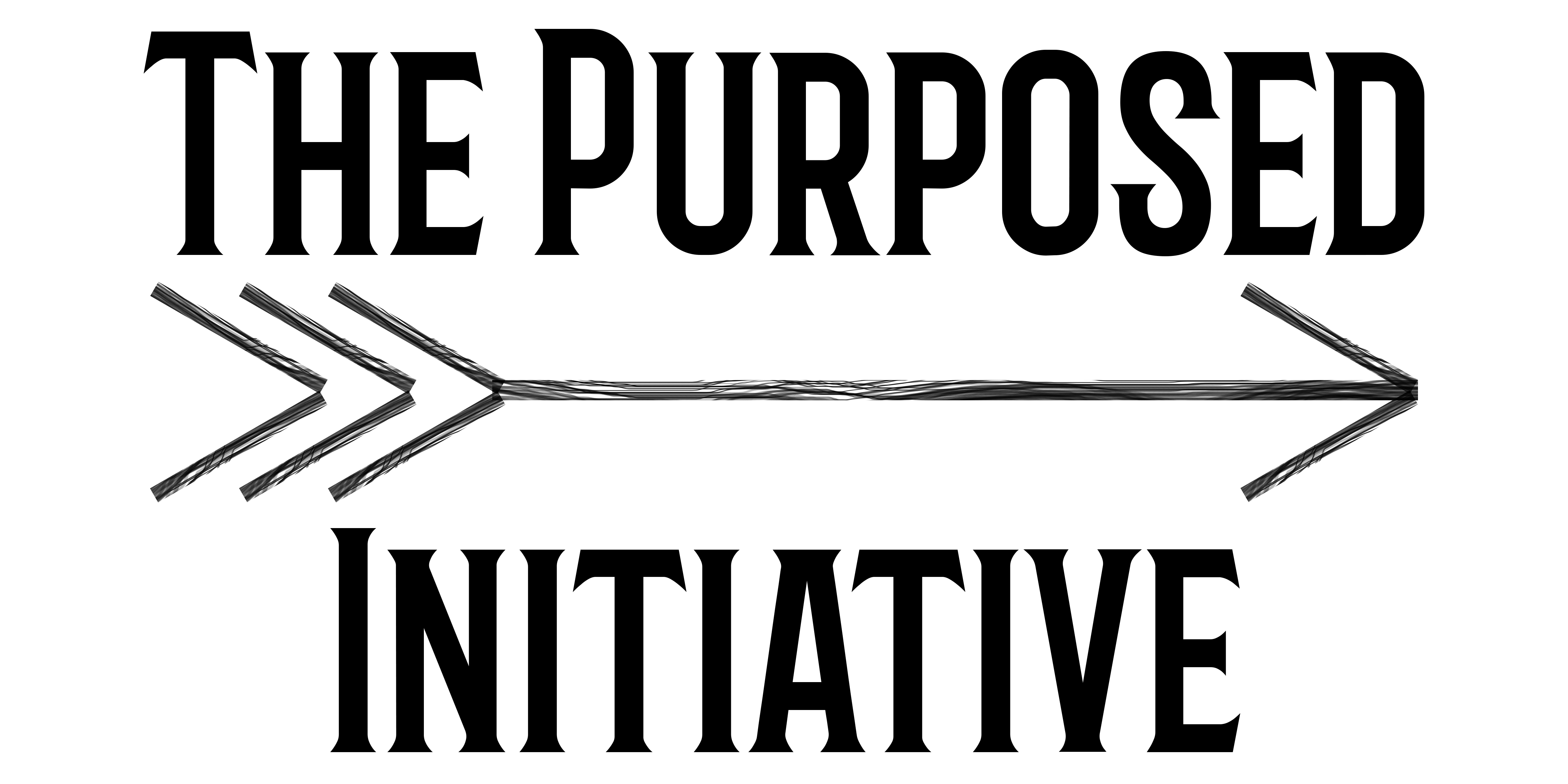
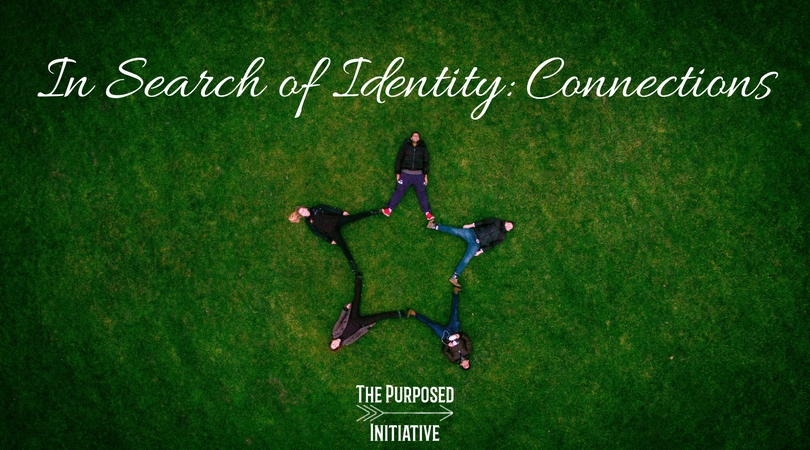
Recent Comments